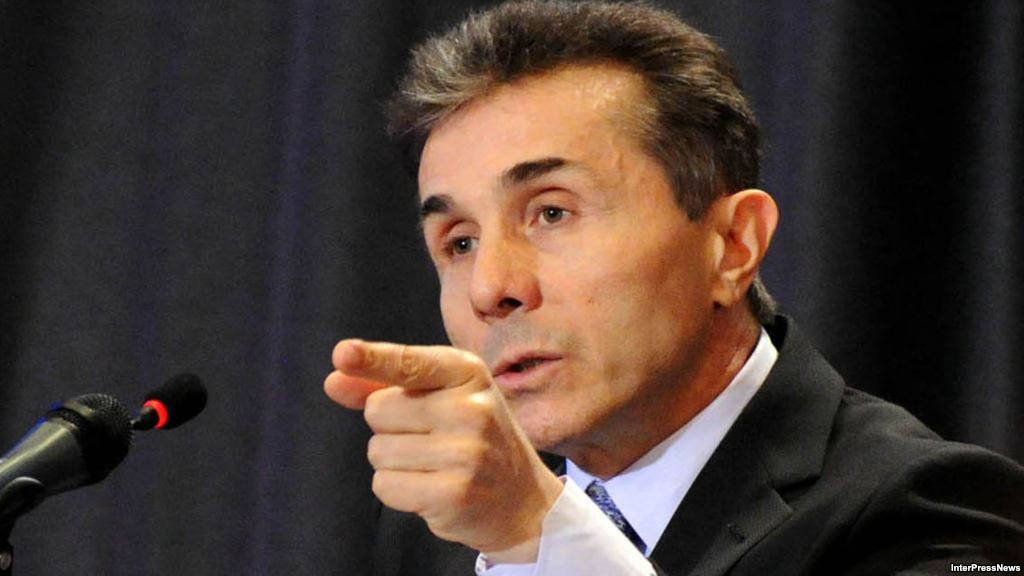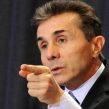
Georgian Prime Minister Accuses Previous Government of Collusion with Terrorists
Publication: Eurasia Daily Monitor Volume: 10 Issue: 84
By:

In four consecutive statements to the international press and local media, as well as to a North Atlantic Treaty Organization (NATO) conference, Georgian Prime Minister Bidzina Ivanishvili has pilloried the country’s previous government for allegedly colluding with North Caucasus terrorists (Civil Georgia, April 29; Rustavi-2 TV, August 26; The New York Times, April 28; Le Monde, April 27–28). President Mikheil Saakashvili and top members of his team reject these imputations, which mix suspicions and outright accusations without any evidence.
In each of these statements, Ivanishvili proffers two distinct, if inter-related accusations. First, he expresses his personal certainty that the previous government under President Saakashvili consciously tolerated Chechen and other North Caucasus “terrorists,” using Georgia as a route or haven for operations against Russia. Second, Ivanishvili expresses his suspicions that Saakashvili’s government actively cooperated with those fighters. Ivanishvili seems to leave no room for doubt on the first count of this political indictment (passive cooperation with terrorism).
Ivanishvili allows a margin of doubt on the second count (active cooperation), saying that the investigation would “very soon” determine the facts, but hinting that he possesses information about the former government’s alleged support for insurgents and that the investigation might uncover some “shocking” cases in this regard. Furthermore, in each of these statements, Ivanishvili claims credit for his own government “stopping” the previous government’s collusion with Chechen and other fighters.
Ivanishvili told Le Monde (April 27–28) in an interview: “Everyone knows that in recent years, fighters from the [North] Caucasus have used Georgia as a transit country. We have ended this. There are suspicions that the [former] government cooperated with them, being at least aware of their movements. I may even have the information, but it would not be nice for me to say everything.”
He went on to tell The New York Times (April 28) in another interview: “We know that Georgia was used for years as a transit point for fighters. We will stop this.” Moreover, the new government suspects that “the previous government was cooperating with the fighters” and has launched an investigation on this basis.
Speaking to a session of NATO’s Parliamentary Assembly in Tbilisi, Ivanishvili insisted: “I have expressed my suspicions, and I can reiterate it now that there are grounds for such suspicions” (Civil Georgia, April 29).
In an interview televised country-wide, Ivanishvili asserted: “I have stated a number of times that Georgia’s territory was used as a transit route for North Caucasus fighters. We have completely closed this route, and I think that this will not recur. […] I suspect that what the Ombudsman [see below] was saying is true, but the investigation will be over in the near future, and we will learn many new facts. I think that a lot may even be shocking. There is suspicion that the [previous] government was cooperating with gunmen and terrorists” (Rustavi-2 TV, April 26; Civil Georgia, April 27).
The Ombudsman, Ucha Nanuashvili, speaking in parliament on April 1, had accused the former authorities of active cooperation with Chechen terrorists against Russia. On that basis, law enforcement agencies started investigating the previous government of President Saakashvili. The ombudsman reiterated those accusations in parliament on April 30 (Interfax, April 30). Nanuashvili is a political appointee of the Georgian Dream governing coalition; while the investigating agencies are the interior ministry and the prosecutor general’s office, headed by Ivanishvili’s former private charity manager Irakli Gharibashvili and Ivanishvili’s former private lawyer Archil Kbilashvili, respectively (see EDM, April 3, April 30).
Former state security minister Valery Khaburdzania has echoed Ivanishvili’s accusations about the former government colluding with Chechens: “The fighters were at least encouraged, or at worst received real assistance” from the authorities, up to 2012 (Interfax, May 1). Khaburdzania had relocated to Russia in 2004, but returned to Georgia in 2013, with the declared goal of creating a pro-Russia party with the former chairwoman of parliament Nino Burjanadze and other Moscow-oriented politicians (Trend citing Maestro TV, March 11; Georgian Public TV, May 1).
These allegations and the ensuing investigation are designed for the consumption of three distinct audiences, each within the context of a specific political agenda of Ivanishvili’s team: the United States, Russia and the opposition United National Movement.
Ivanishvili came out personally with these accusations on the heels of the Boston Marathon bombing by two terrorists of Chechen descent. Capitalizing on the political effects of this terrorist act in the United States, Ivanishvili is attempting to link Georgia’s former government, now the opposition United National Movement led by Saakashvili, with Chechen (and, more vaguely, “North Caucasian”) violent militants. According to Ivanishvili’s message, the Boston Marathon bombing showed that Russia, the United States and Georgia share a common foe in Chechen militancy, whereas Georgia’s UNM government colluded with terrorists. This tactic is reminiscent of that employed by Ivanishvili’s public relations apparatus in the United States during the 2012 electoral campaign. The basic idea is to induce some degree of US doubt in the Georgian government’s (in 2012) or the UNM opposition’s (in 2013) bona fides, so as to make it politically difficult for Washington to intercede in the event of extra-legal actions against Saakashvili’s party. Accusations of collusion with terrorism, high-level corruption and “dictatorship” are components of the same package.
Russia is another audience in this case. It is in the context of his attempts at rapprochement with Russia that Ivanishvili pillories the former government for assisting North Caucasian insurgents. Listing his government’s recent steps to improve relations with Russia, the prime minister cites toning down the rhetoric, modifying Georgia’s national security doctrine, “supporting” Russia’s holding of the Sochi Winter Olympics, and “putting an end” to the former government’s alleged relationship with terrorists. This, presumably, demonstrates the present government’s efforts to rebuild relations with Moscow. In the same context, Ivanishvili is repeating a thesis first aired by Kbilashvili (see above) and Justice Minister Tea Tsulukiani when they announced investigations into the Saakashvili government’s alleged responsibility for the 2008 Russia-Georgia war. That thesis claims that it is preferable for Georgia itself to hold such investigations, rather than have “these allegations investigated and confirmed by ‘other countries’ or ‘a third state’ [i.e., Russia].” With this, Ivanishvili and his team are implicitly and gratuitously brandishing a Russian threat to justify their own threats against the opposition (Rustavi 2 TV, April 26; Civil Georgia, April 27, 29; see EDM, April 3, 16, 17).
The Georgian public generally, and UNM in particular, is the other audience of these threats. Under the threat of investigations and prosecutions, the new government seeks to cow the UNM opposition into silence and ultimately force it out of the political system. By expressing his own certainty that Saakashvili’s UNM government colluded in one way or another with terrorists (see above), Ivanishvili is, in effect, pre-judging the investigation’s outcome. He refers to the UNM opposition as “idiots,” to Saakashvili as “a liar,” and asserts: “I strongly suspect that he [Saakashvili] will be imprisoned. But it is up to the courts” (Le Monde, April 27–28; The New York Times, April 28). All in all, this is shaping up as a politically-motivated investigation, conducted by the prime minister’s personal appointees, and prejudiced from the outset in its motives and its procedure.




